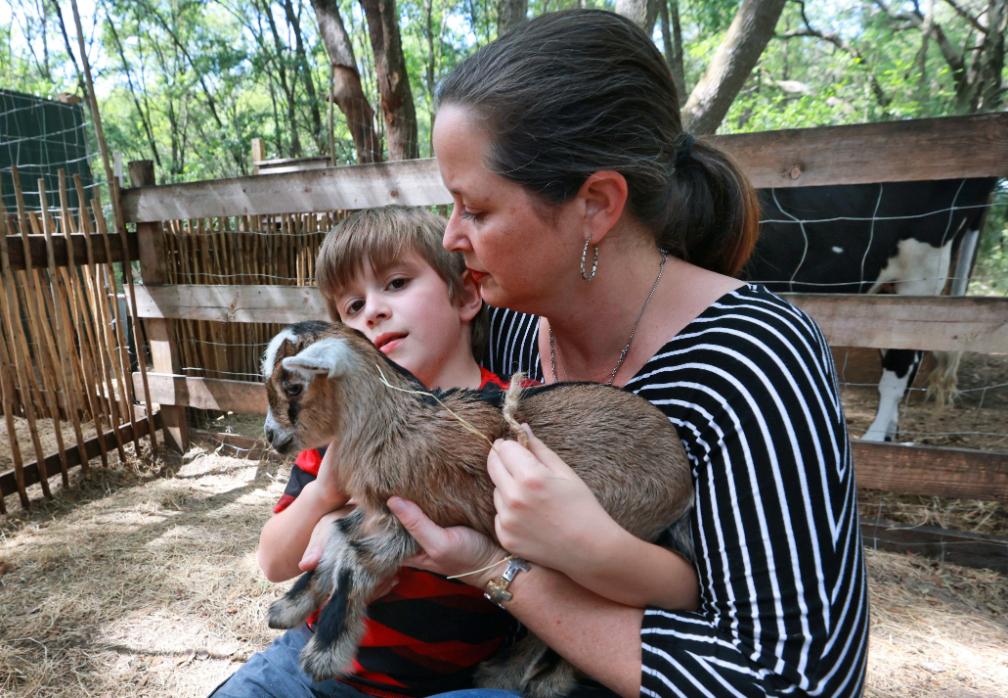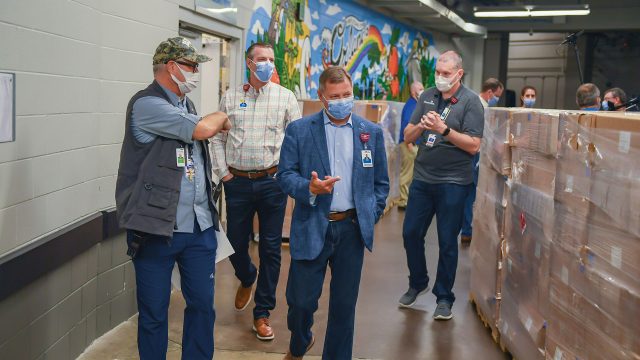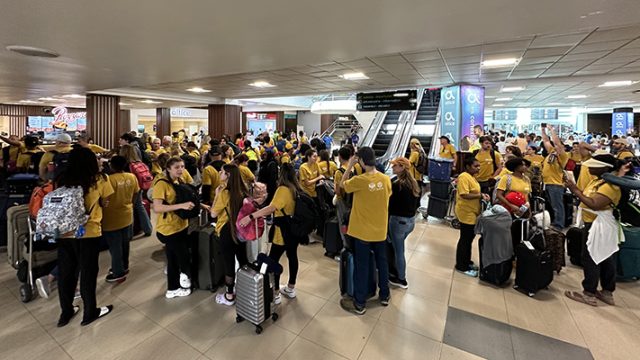Puzzle Ranch includes horses, chickens, rabbits, cows, goats, pigs, and tortoises.

Tucked away in the countryside of Sorrento, Florida, United States, Puzzle Ranch has become a safe haven for families with children with autism. For Cameron Munoz, a labor and delivery nurse at AdventHealth Waterman, it’s also home for her four boys, who are all on the autism spectrum.
Munoz’s sons — Alex, 15, 10-year-old twins Michael and Matthew, and Elijah, 8 — were the family’s inspiration to move to Lake County from Orlando in 2020 and to open Puzzle Ranch the following year. It started with horses and grew to include chickens, rabbits, cows, goats, pigs, and tortoises. Over the years, Munoz and her husband built out several acres with Western-themed cabins, a teepee, and campfire circle, beside her family’s home.
“We wanted to let other people in and try to give them an opportunity to have some memory-making experiences in a place where they can just feel welcomed and wanted, and make it easy,” Munoz said in an interview with the Orlando Sentinel. “Because we know what it’s like to have the challenges of living with children that have a disability.”
Munoz was also named a Community Champion by WESH-2 News for the work she’s done to help children with autism and other special needs. She said, “I’m advocating for my kids, advocating for other families in the community, and really trying to champion … recognizing [people with disabilities] as individuals, accepting them and including them.”
Autism is a neurodevelopmental or a neuropsychiatric disorder caused by abnormalities in parts of the brain that interpret sensory input and process language, explained Tina Gurnani, a child and adolescent psychiatrist with AdventHealth for Children who specializes in treating children on the spectrum.
Children with autism may exhibit a wide range of symptoms but typically have difficulty expressing and recognizing emotions, and may exhibit repetitive behaviors, motions, and language. Some are non-verbal and others speak completely fluently. Munoz’s sons were all diagnosed with autism when they were about 1 ½ years old and still not talking.
But speech and occupational therapies, educational interventions, and opportunities to learn and practice skills have been found to significantly improve symptoms of autism. For Munoz’s children, working with animals has helped them become more interactive and learn about boundaries and being gentle, plus they have plenty of outdoor space to get their energy out.
“Children with autism, they can have less anxiety when they’re with children who have similar difficulties to them, and when they have the freedom to roam around and do what they feel comfortable doing,” Gurnani said. It’s also beneficial for parents to have the chance meet other families with children on the spectrum and have a judgement-free zone to take their kids, she added.
According to the latest report from the U.S. Centers for Disease Control and Prevention, one in 36 eight-year-olds were identified with autism in 2020. It’s a significant increase in the number of children estimated to be on the spectrum, compared to one in 44 in 2018 and one in 150 in 2000.
Among the families affected by autism, up to 18 percent have more than one child with the disorder.
“It’s a very different type of parenthood, very different from what you expected parenthood to look like. And there’s a lot of grief in that,” Munoz said. “It comes during small moments. When I think about planning a trip, or if my sons will ever go to prom, or it can even be in the breakroom hearing coworkers talking about their kids’ soccer and football practices. And there’s a hundred of those little moments that happen throughout the year.”
But at Puzzle Ranch, Munoz is helping Central Florida families make some of the memories they dreamed of.
The original version of this story was posted by AdventHealth.








